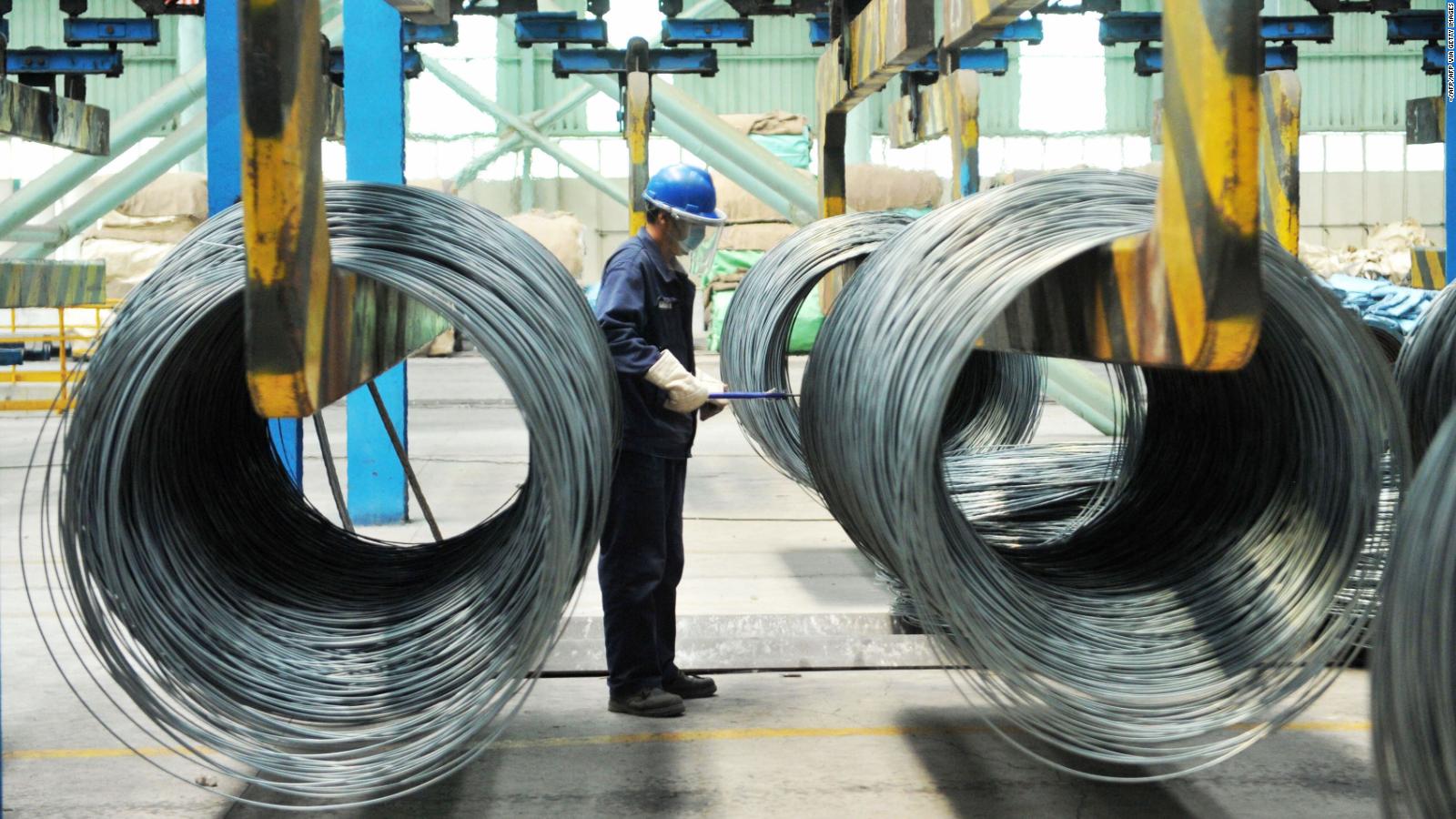Will sanctions help Russia get out of Ukraine?
2:09
London (CNN Business) --
Russian President Vladimir Putin's decision to invade Ukraine could send prices higher at a time when inflation is already rising at the fastest rate in decades.
Economists are rushing to assess the impact of the attack, which could spark Europe's biggest war since 1945. The conflict is unlikely to push the world economy back into recession, they say, but market turmoil, the threat of Punitive sanctions and possible supply interruptions are already driving up the wholesale price of energy and some agricultural products.
As a result, consumers will pay more for gasoline and food.
War Russia - Ukraine: last minute and news of the attack and invasion live
"Inflation is likely to hit higher levels than we expected just a few days ago," said Ben May, director of global macroeconomic research at Oxford Economics.
This is what could become more expensive worldwide as a result.
Gasoline
Oil price rises above US$100 a barrel 0:49
World oil prices rose above $105 a barrel on Thursday, reaching their highest level since 2014. In the United States, oil prices approached $100 a barrel.
advertising
That will make it more expensive for drivers to fill their tanks.
In the US, the average price of a gallon of gasoline rose to $3.54, up from $3.33 a month ago and $2.66 a year ago.
The Biden administration is exploring ways to mitigate rising gasoline prices, though it's unclear how much can be done given high demand and tight supply.
The price of natural gas, which is used to heat homes and the electrical industry, is also skyrocketing.
The reference price in Europe soared 29% to 114.65 euros ($127.80) per megawatt hour (MWh) on Thursday, according to data from Independent Commodity Intelligence Services.
That's down from the all-time high reached before Christmas, but it will still hit pockets if prices remain elevated.
Bank of America previously estimated that European households would pay 650 euros ($724) more for energy this year, bringing the average spend to 1,850 euros ($2,061).
Higher energy costs will also increase expenses for businesses.
Jet fuel will become more expensive for airlines, potentially leading to higher airfares, while energy-intensive manufacturers such as steelmakers will come under pressure.
That could affect the entire economy.
Food
World food prices were already near a 10-year high.
Now, the conflict between Russia and Ukraine could make things worse.
Russia is the world's leading exporter of wheat, while Ukraine is a major exporter of both wheat and corn.
They also export vegetable oils.
Wheat prices rose to their highest level since 2012 on Thursday.
The price of corn also rose.
Soybeans, which often trade in line with corn, also rose.
Egypt and Turkey are the main buyers of Russian wheat.
But they won't be the only ones affected if shipments are delayed or sanctions disrupt exports.
"Regardless of where exactly food products go, clearly if there is a shortage in general in the world, then the price will go up," May said.
Ukraine still needed to export 15 million metric tons of corn and 5-6 million metric tons of wheat this season, according to Michael Magdovitz, a commodity analyst at Rabobank.
Now buyers like China are turning to Europe and the United States to fill the gap.
If the fighting drags on, the limited supplies there could become even more limited.
"If you have a prolonged conflict, then you need to find a much larger number," Magdovitz said.
Helima Croft, head of global commodity strategy at RBC Capital Markets, said the risk of further food price inflation "looks acute" because Russia and Ukraine together account for 25% of global wheat exports, while that Ukraine alone accounts for 13% of corn exports.
And there is another potential blow to farmers: Russia is the largest producer of ammonium nitrate, a key component in fertilizers, RBC added.
US Agriculture Secretary Tom Vilsack said on Thursday that European consumers could be more exposed than Americans to higher food prices.
metals
The price of metals used in a wide range of consumer products is soaring as investors investigate the ramifications of the invasion and weigh whether sanctions could hit supplies.
"Russia is a major producer of metals, including aluminum and nickel, and is also a major copper producer," analysts at S&P Global Platts said.
"Market sources believe that the near certainty that tougher sanctions will be introduced on trade with Russia could further reduce supplies in already tight global markets."
Aluminum prices in London soared to an all-time high on Thursday.
Russia's Rusal, which has been previously sanctioned by the United States, is one of the world's largest aluminum producers.
If new sanctions are imposed, prices could skyrocket.
Prices were already high because smelters in Europe have had to cut production due to rising electricity costs.
Even if Rusal is not sanctioned, the latest spike in energy prices could exacerbate the situation.
Metals like aluminum are used in thousands of products around the world, from food and beverage cans to vehicles and electronics.
Conflict Russia - Ukraine






